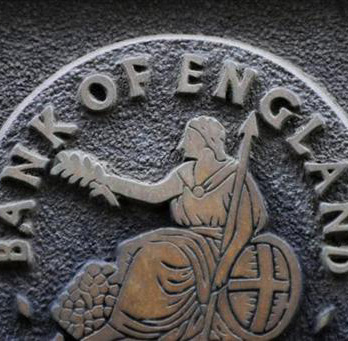
16 August 2016
Bank of England Takes Steps to Support the UK Economy Post Brexit
The Build UK State of Trade Survey collects data from across the contracting supply chain, offering a fantastic insight into the sector’s performance. The results of the survey are of great interest to institutions such as the Bank of England, which also regularly consults with Build UK as part of its work to understand how the state of the construction industry contributes to the overall economic situation in the UK.
Following the publication of its latest Inflation Report, the Bank of England’s Agent for London Peter Andrews discusses the impact of Brexit on the UK and the steps that the BoE are taking to support the economy in these uncertain times…
We are entering what is likely to be a period of significant change for our economy, with the vote to leave the European Union ushering in a new era for the UK’s relationship with the rest of the world. Certain adjustments to this new reality may prove difficult and many will take time.
While the Bank of England firmly believes that the UK – one of the most flexible economies in the world – can handle this change, there will inevitably be a period of heightened uncertainty as the process takes place.
A couple of weeks ago, the Bank published its latest Inflation Report which explained how the vote to leave the EU has resulted in a material change in the economic outlook. For example, the big fall in the value of sterling since the referendum will push up import and consumer prices notably over the next three years. We also now expect growth to be weaker and unemployment higher over the next couple of years than at the time of our last forecast in May. Importantly, there are signs that this is already materialising.
Some uncertainty indicators have risen, property markets appear to be weakening, and surveys of activity growth have fallen.
In response, the Bank’s Monetary Policy Committee (MPC) has unveiled a comprehensive package of measures to support the economy. The package includes a reduction in Bank Rate from 0.5% to 0.25% – the first change in interest rates for seven years – along with a new Term Funding Scheme, worth up to £100bn, to ensure that this cut is passed on by lenders to households and businesses. The Bank is also expanding its programme of purchases of government bonds by £60bn and launching a new scheme to buy £10bn of UK corporate bonds.
These measures should provide a significant stimulus to economic activity, bolstering confidence and blunting the slowdown. They should also have a real beneficial impact for households and businesses, including the construction sector, and there is scope to extend them if circumstances require. The Bank’s Greater London Agency team has contacted companies in every sector of the economy across London, to understand how they are affected by this period of heightened uncertainty. Although some companies tell us that they have not changed their plans as a result of the referendum outcome, others are more cautious about decisions on investment and hiring.
We recently published our latest Agents’ Summary of Business Conditions which included the findings of our survey on the impact of the EU referendum on our contacts.
The clear result was that the outcome would have a negative effect, overall, on capital spending, hiring and turnover over the coming year.
Construction output growth had eased, with many contacts expecting further weakening to come. The weaker pound has already pushed up the price of imported goods for some businesses, leading to expectations of price increases in due course, while material costs have stopped falling.
At challenging times like this, what is always striking is the resilience and versatility of the business community. As circumstances change, companies will adapt to take on new challenges and embrace new opportunities. We hope that the recent actions taken by the Bank of England will play a small part in helping them to do that.
Build UK will continue to work with the Bank of England to share information and ensure that the construction sector contributes to future UK economic analysis.
